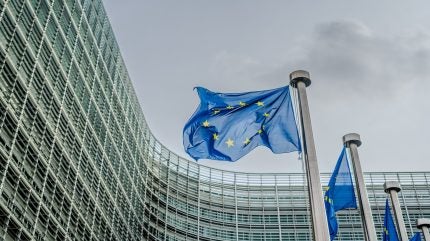
The European Commission (EC) has earmarked €992m ($1.1bn) to accelerate renewable hydrogen production across the European Economic Area (EEA).
This substantial funding aims to stimulate the development of 15 selected projects, which are projected to produce 2.2 million tonnes (mt) of renewable hydrogen over ten years.

Discover B2B Marketing That Performs
Combine business intelligence and editorial excellence to reach engaged professionals across 36 leading media platforms.
This initiative is expected to prevent more than 15mt of CO₂ emissions, significantly contributing to the EU’s decarbonisation efforts.
The renewable hydrogen will be generated for use in various sectors, including transportation, chemical production, and the synthesis of methanol and ammonia.
The EU funding comes from the Innovation Fund, which is financed by the EU Emissions Trading System (ETS).
The winning projects were chosen after the second auction by the European Hydrogen Bank (EHB) and will receive subsidies to bridge the gap between production costs and market prices.

US Tariffs are shifting - will you react or anticipate?
Don’t let policy changes catch you off guard. Stay proactive with real-time data and expert analysis.
By GlobalDataMost of the selected projects have agreed to produce renewable hydrogen with fixed premium support ranging from €0.20 to €0.60 per kilogram.
Climate, Net Zero and Clean Growth commissioner Wopke Hoekstra said: “The results of the second EU-wide auction for renewable hydrogen underscore both the strong interest from industry and the increasing competitiveness of clean hydrogen in Europe.
“We are now able to support more projects, and at highly competitive prices. I also warmly welcome the joint efforts of Spain, Austria, and Lithuania, whose participation through the Auctions-as-a-Service scheme demonstrates a shared commitment to scaling up hydrogen production across the Union.”
For the first time, the auction allocated a special budget for hydrogen producers supplying the maritime sector, leading to three bids receiving €96.7m in grants. The subsidies for the 15 projects vary, with amounts between €8m and €246m over up to ten years.
In addition to EU funding, Spain, Lithuania, and Austria are allocating up to €836m in national funding for projects through the ‘Auctions-as-a-Service’ feature.
This enables member states to fund eligible projects within their territories that meet the auction’s criteria but exceed the Innovation Fund’s budgetary constraints.
Clean, Just and Competitive Transition executive vice-president Teresa Ribera said: “The second auction under the European Hydrogen Bank reaffirms our commitment to building a robust renewable hydrogen market in Europe — one that is key to achieving climate neutrality in a cost-effective and competitive way.
“We are increasing the EU’s energy independence with positive impacts in security and jobs. The strong response to the auction clearly reflects the vitality and growing confidence in Europe’s emerging renewable hydrogen industry.”
The projects will soon enter the grant agreement preparation phase with the European Climate, Infrastructure and Environment Executive Agency (CINEA), with signings expected by September/October 2025.
Once signed, projects must reach financial close within two and a half years and initiate renewable hydrogen production within five years. They will then receive the fixed premium subsidy for up to ten years.
A third European Hydrogen Bank auction is scheduled for the end of this year, with a budget of up to €1bn, as part of the Clean Industrial Deal.
Additionally, the EC plans to launch the Hydrogen Mechanism under the European Hydrogen Bank, an online platform to facilitate hydrogen market transactions.
In a related move, the UK Government has shortlisted 27 hydrogen projects in its second Hydrogen Allocation Round (HAR2), aiming to bolster low-carbon hydrogen production and support the country’s Plan for Change by reducing carbon emissions and creating jobs.





